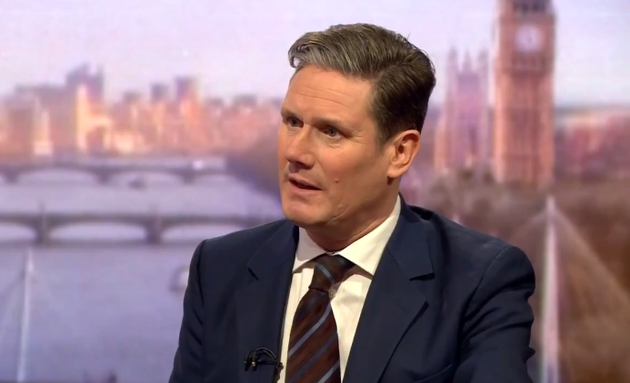Hamza Ali Shah argues Starmer's leadership has so far been 'typified by U-turns, disingenuity and underhandedness'

Sir Keir Starmer wasted no time in attacking Prime Minister Boris Johnson as he carried out his speech earlier this week to conclude the Labour Party Conference.
He described him as a ‘trivial man’ and a ‘trickster who’s played his one trick’.
The Labour leader was keen on distinguishing himself from Johnson and the Conservatives, therefore portraying himself as the oven-ready replacement for 10 Downing Street.
But the reality is that Starmer is singing from the same deceitful playbook that Boris Johnson practically wrote.
Only this month Johnson announced manifesto-breaking plans to hike national insurance contributions, in the name of paying for social care, to add to the catalogue of broken promises.
It is unsurprising that the shadow Northern Ireland secretary told the Labour conference that the Prime Minister has an ‘addiction to dishonesty’.
However, perhaps she ought to glance at her boss who appears to have gotten a fix lately. Starmer is seemingly impressed and keen to make such effortless lying a feature not a bug of the British political landscape.
As Starmer took to the stage in in Brighton to map out what Labour stands for and his vision for the party, the deception was inescapable.
Labour will ‘never again go into an election with a manifesto that is not a serious plan for government,’ Starmer said, not pulling any punches about his predecessor’s election strategy. Yet as Labour’s executive director of policy under Corbyn, Andrew Fisher, pointed out, Starmer was very much part of that team. He was present when the manifesto was signed off and did not raise a single concern.
Sticking to the 2019 election, he highlighted how voters opted for the Tories because they did not believe that Labour’s promises were ‘credible’. But as someone in the audience reminded him, he was the engineer of the party’s Brexit policy. It was a stark reminder that his act was not lost on the public.
Nevertheless, such duplicity remained as he spoke. He cited the ‘dignity of work’ before bemoaning how the key workers throughout the pandemic were rewarded with low pay and job insecurity. ‘£15 an hour!’ a heckler retorted. Starmer was pitching his party as a safe haven for workers, whilst conveniently ignoring that just 24 hours earlier, his office was briefing MP’s to argue against a National Minimum Wage of £15 an hour, triggering the resignation of Andy McDonald from the Shadow Cabinet.
This deceptive modus operandi has become a deep-rooted pillar of Starmer’s style. Central to his leadership election campaign in 2020, and arguably the main reason he won so convincingly, was the promise that he would marry the transformative policies of the Corbyn era with competent leadership – hence his 10 key pledges. First on that list was economic justice and specifically the intention to reverse years of Conservative corporation tax cuts.
But when the Chancellor Rishi Sunak did exactly that in the Spring, Starmer opposed an immediate tax rise and called on his MPs to abstain.
It did not stop there. He also committed to the nationalisation of trains, water and energy firms. Yet in an interview after the conference, Starmer said nationalising companies was not the right thing to do. This unhealthy obsession with reneging coupled with the apparent unwillingness to offer robust policies raises alarm bells about his trustworthiness.
And on the rare occasion that Starmer’s Labour offered something conclusive, he did not possess the frankness to acknowledge where the policy originated from. When quizzed on Thursday by BBC’s Nick Robinson, Starmer proudly promoted Labour’s fiscal rules, citing the Shadow Chancellor Rachel Reeves’ speech during conference. He emphasised how under Labour the country would borrow to invest and pay for everyday spending.
Despite Starmer’s best efforts to frame the announcements as revelatory ambitions, John McDonnell was quick to highlight that Reeves was merely reiterating the fiscal rules the party adopted in 2017.
Had Robinson pointed that out, presumably Starmer would have backtracked in his characteristically unprincipled manner.
So how has Starmer’s ground plan been received? As the first post-Labour conference poll trickled through, the Conservatives still maintained a healthy eight-point lead.
It is almost as if the electorate can see through the posturing of a leader whose politics is typified by U-turns, disingenuity and underhandedness, all whilst claiming to represent the precise opposite.
Hamza is a political researcher and writer based in London.
Left Foot Forward doesn't have the backing of big business or billionaires. We rely on the kind and generous support of ordinary people like you.
You can support hard-hitting journalism that holds the right to account, provides a forum for debate among progressives, and covers the stories the rest of the media ignore. Donate today.



